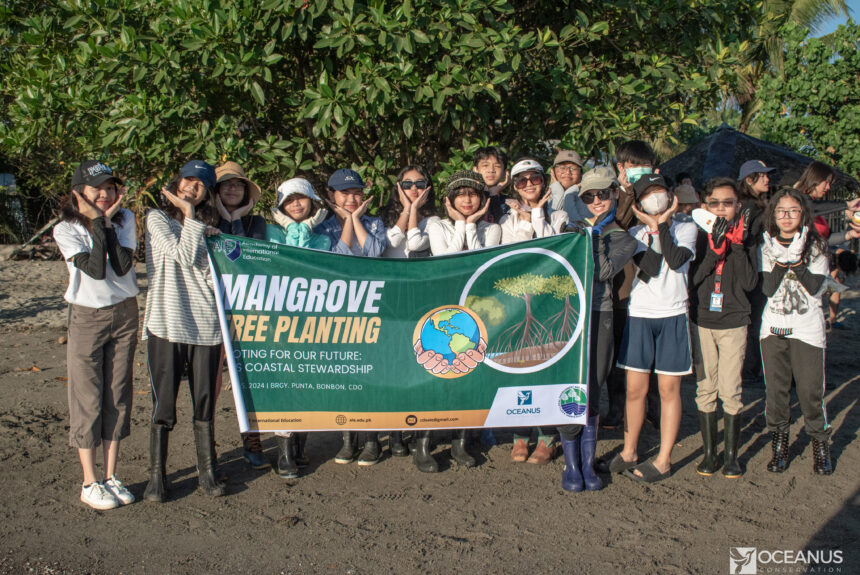Last April 24 and 25, the Academy of International Education hosted a learning session in partnership with Oceanus Conservation and City Environment and Natural Resources Office (CENRO), focusing on mangrove ecosystems.
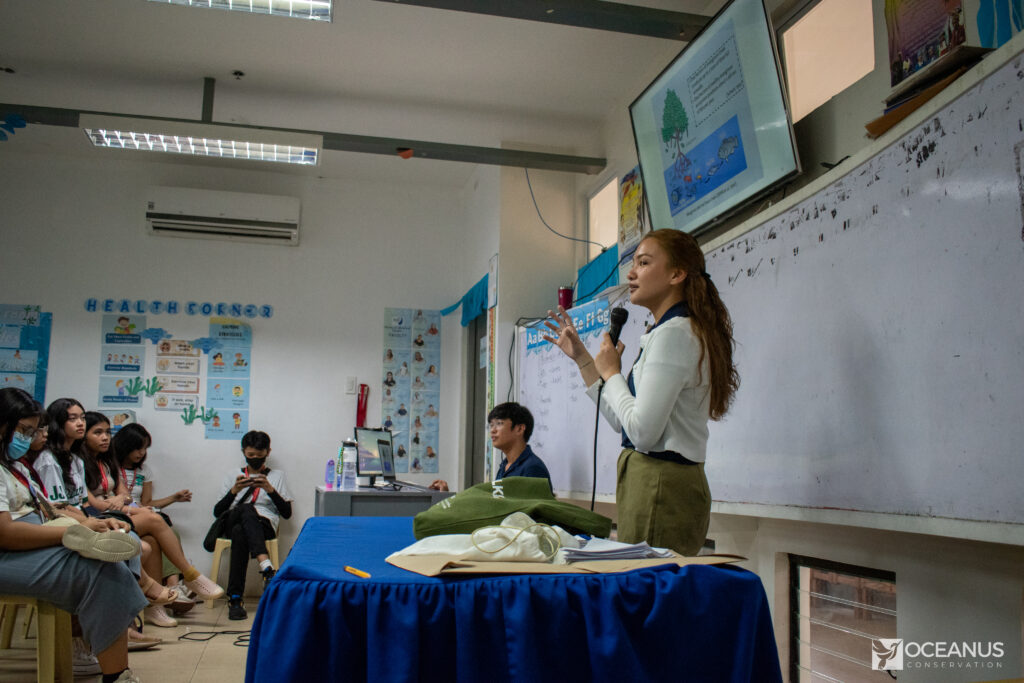
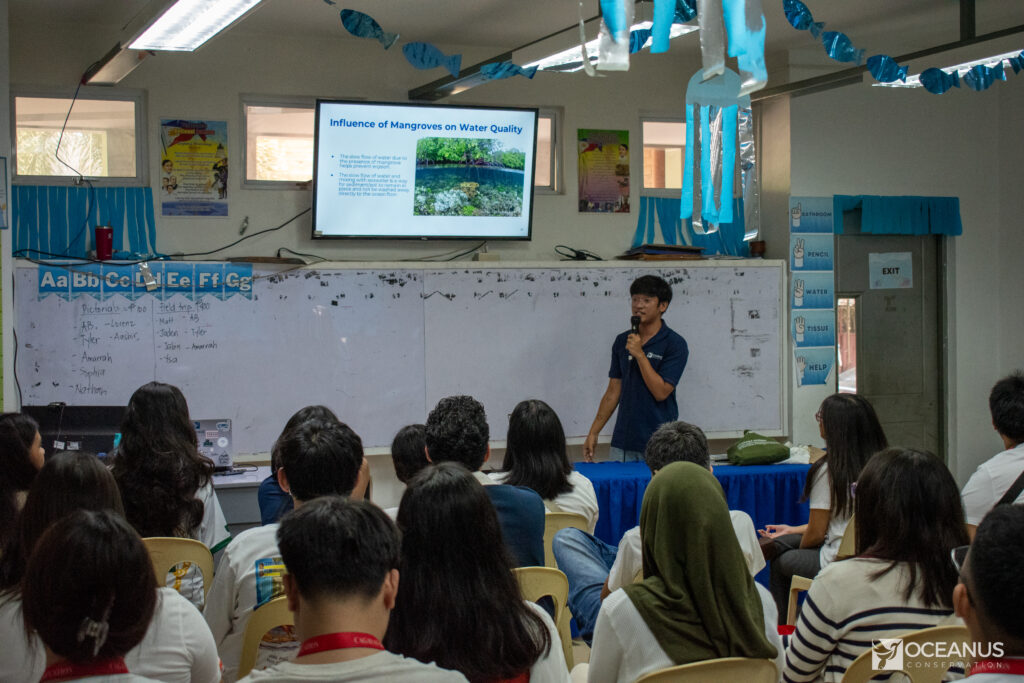
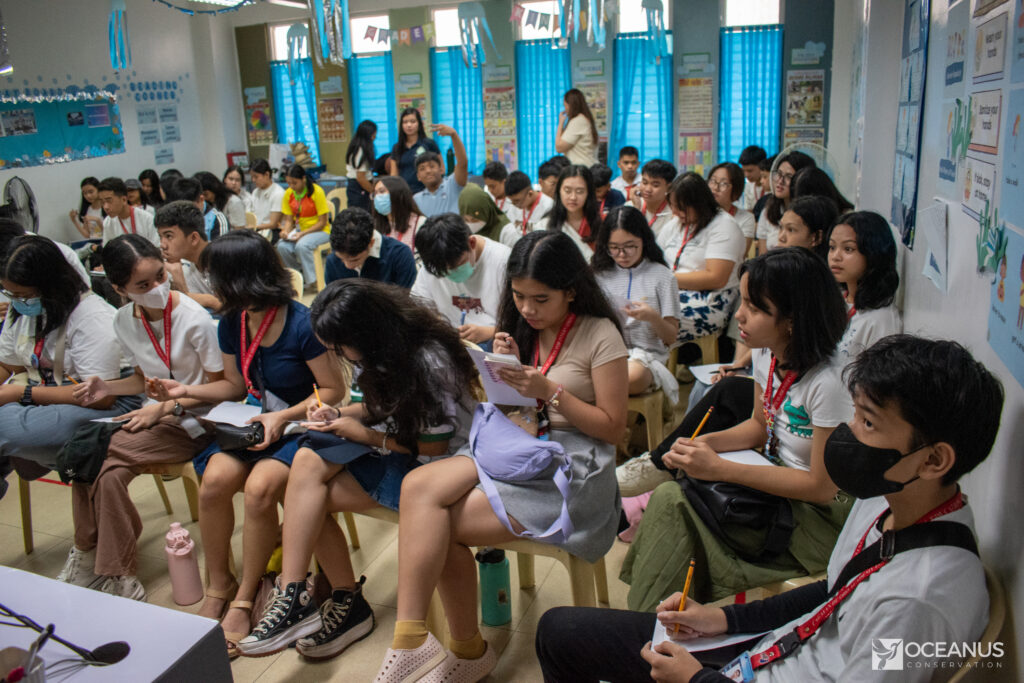
Fifty students from grades seven to ten and the faculty attended the lecture on the first day, where Oceanus taught them about mangrove biology, zonation, stressors, and the techniques for proper planting. This session aimed to provide students with a solid understanding of the importance of mangroves in coastal environments.
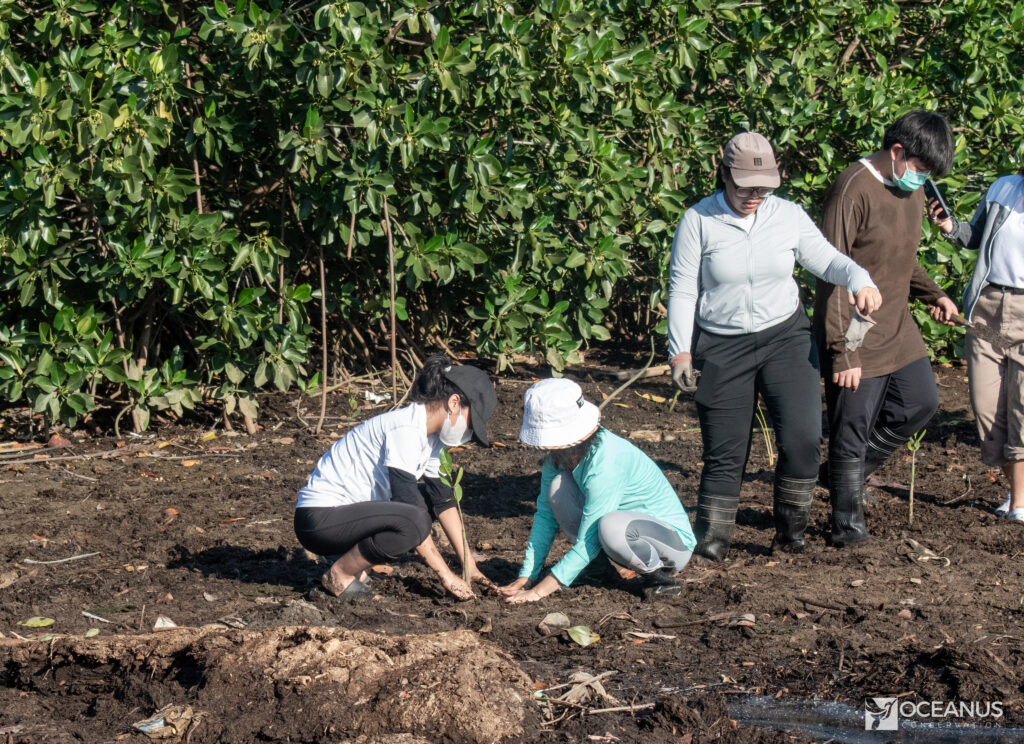

The practical aspect of the event took place the next day in Sitio Punta Bonbon, where the students applied what they had learned. Guided by Oceanus, the students engaged in hands-on mangrove planting. They learned the proper techniques for planting mangroves, including selecting the right species, ensuring correct spacing, and planting at the right depth. This activity gave the students a chance to contribute to local conservation efforts.
The combination of a lecture and hands-on activity helped the students gain a comprehensive understanding of mangrove ecosystems and their role in coastal protection and biodiversity. This event also highlighted the importance of involving young people in environmental conservation, providing them with practical skills and knowledge that can be used to support future conservation initiatives.
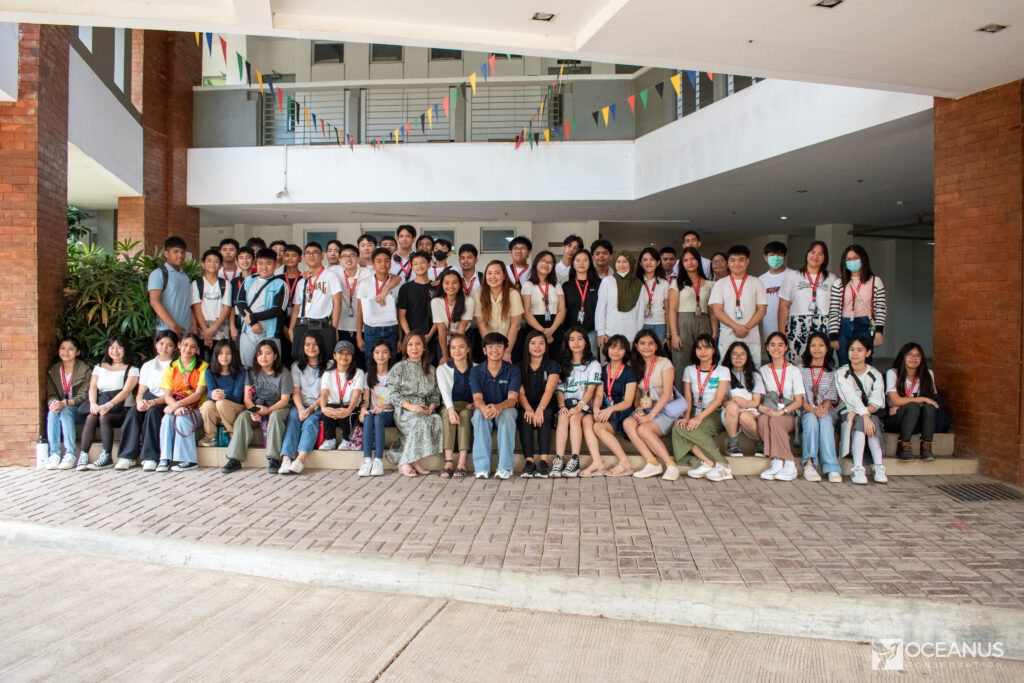
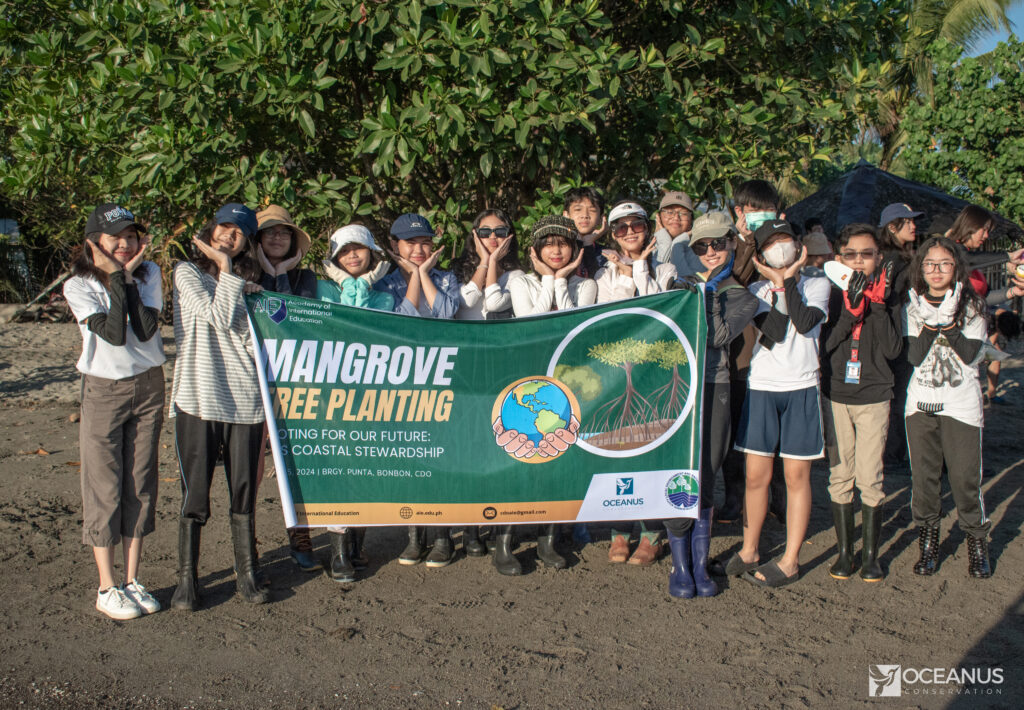
Oceanus Conservation plans to conduct more educational sessions in the future, focusing on proper planting techniques and exploring nature- and science-based solutions for environmental challenges. By continuing to educate and involve students, Oceanus aims to create a generation of environmentally aware individuals equipped to make positive contributions to their communities. The partnership with the Academy of International Education represents a significant step towards this goal, with the students’ participation indicating strong potential for future conservation efforts.


